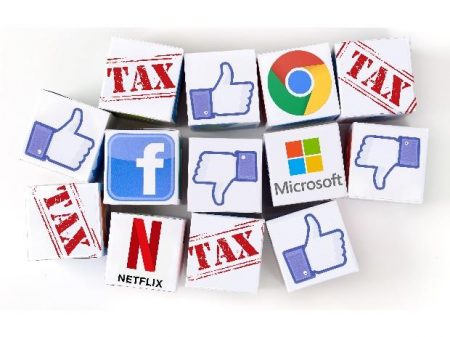Digital Tax 08/06/2019 – Posted in: Daily News – Tags: Tax regime
DIGITAL TAX
For: Preliminary & Mains
Topic covers: About Digital tax, Fundamental pillars, and India’s view on Digital taxing
News Flash
The Finance Ministers of the G20 member nations called for the creation of a digital tax for multinational technology companies, the details of which will be finalized next year.
The initiative was discussed during a G20 Ministerial Symposium in the Japanese city of Fukuoka.
The representatives from Japan, US, China, France and the UK wanted digital giants such as Amazon, Google and Facebook to be taxed based on their revenue and number of users in every market where they operate.
The G20 ministers committed to working on charting out a “digital tax” by the end of the year and publish a report in 2020.
Two fundamental pillars of the initiative
- One based on ending with the principle of taxation according to the physical presence of the country.
- The second aimed at stopping the tax competition and companies turning to countries with less tax pressure.
Why taxing
- Rapid digitization is one constant that has changed the world we live in.
- Almost everything is possible online.
- As more and more people participate in the digital economy, there is a need for countries to develop a framework to regulate and to get a ‘fair’ share of taxes from the revenues generated by such businesses.
India on Digital Tax
India has already moved forward and has applied Equalization Levy since 2016 at a rate of six per cent on the payments made by Indian businesses to non-residents providing digital advertising services.
In 2018, India recognized virtual presence as constituting nexus for the purpose of asserting taxing rights and introduced the concept of Significant Economic Presence (SEP) in its tax laws.
The SEP is defined based on certain revenue and user thresholds that remain to be prescribed.
G20
The G20 Summit is formally known as the “Summit on Financial Markets and the World Economy”. As the “premier forum for international economic cooperation” (agreed by leaders at the Pittsburgh Summit in September 2009), representing more than 80% of the global GDP, the G20 has made continuous efforts toward achieving robust global economic growth.
The participants are leaders from 19 countries and the Europian Union (EU). The 19 countries are Argentina, Australia, Brazil, Canada, China, France, Germany, India, Indonesia, Italy, Japan, Mexico, Republic of Korea, Republic of South Africa, Russia, Saudi Arabia, Turkey, United Kingdom, United States of America.
Source: The Hindu
You can follow us on LinkedIn and for more updates related to UPSC IAS Preparation, Like our Facebook Page and subscribe our Diligent IAS Youtube Channel

